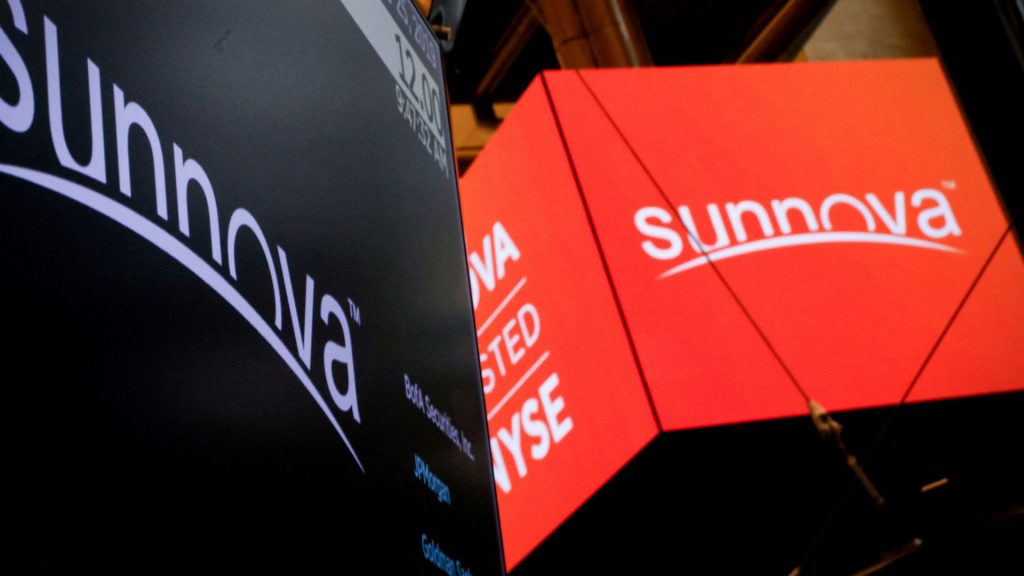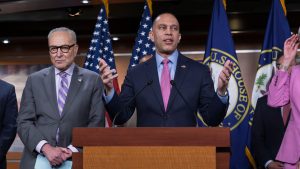Sunnova bankruptcy is latest warning sign for residential solar industry

Residential solar company Sunnova Energy filed for bankruptcy Sunday, June 8, after laying off more than half its employees the previous week. The Houston-based company cited mounting debt and declining demand for rooftop solar.
While reporting disappointing numbers at a quarterly earnings call in March, CEO John Berger described the end of 2024 as a “challenging time for our industry” and said, “stubbornly high interest rates, along with regulatory and political uncertainties” made both consumers and investors hesitant.
The bankruptcy filing comes at a moment of high uncertainty for the U.S. solar industry. Having been boosted by tax incentives passed in 2022, Congress is now considering abolishing much of the favorable tax policies under the “Big Beautiful Bill,” a top priority of President Donald Trump. Blue states aren’t offering much reprieve. In California, the largest market for rooftop solar, utility regulators and state lawmakers are rolling back financial incentives for homeowners to go solar. In increasing warning signs for residential solar, Sunnova joins a long list of bankruptcies over the past year.
What happened to Sunnova?
Sunnova Energy has been on a rocky downward spiral since peaking in early 2021 at more than $53 a share. Down to $7 last November, its stock dropped another 50% immediately after Trump won the 2024 presidential election. After the company announced the disappointing earnings for the fourth quarter of 2024 in March 2025, the company’s value slid to less than 50 cents per share.
In May, the Trump administration rescinded a partial loan guarantee of $2.92 billion that was awarded to Sunnova by the Biden administration.
Earlier in June 2025, one of the company’s divisions, Sunnova TEP Developer, filed for Chapter 11 bankruptcy protections in the Southern District of Texas. During the week of June 2, Sunnova laid off 718 employees — representing 55% of its workforce — in order to cut costs. But it wasn’t enough to avoid total bankruptcy, as the entire Sunnova Energy company was added to the previous filing in Texas on Sunday, June 8.
According to court documents, the company is $10.67 billion in debt and has between $10 and $50 billion in assets and liabilities as of the end of 2024.
Why is residential solar struggling?
Sunnova is the second solar company to declare bankruptcy in June 2025 after California-based Solar Mosaic filed for Chapter 11 during the week of June 2. 2024 saw a string of solar company bankruptcies, including SunPower, which had helped pioneer the industry since its founding in 1985.
“We call it the solar coaster for a reason,” Samuel Truthseeker, a 23-year veteran of the industry who is currently the CEO of Texas-based Solvari, said in an interview with Straight Arrow News. “The folks that are successful are the ones that can ride those ups and downs.”
In rooftop solar, Truthseeker said high costs and complicated financing deals are a big part of the problem. Because of high interest rates, it’s costly for homeowners to finance solar panels — sometimes up to a third of what customers pay ends up going toward interest. And because the industry is awash with different companies that sell, install or own the panels, it’s challenging to build long-term trust with customers, which can give the industry a bad reputation and disincentivize new customers.
“There’s no one there held responsible to make sure the homeowner is getting their benefit,” Truthseeker said.
California was traditionally a great market for rooftop solar, with 24% of homes having solar panels. But after the state utilities commission reduced how much homeowners can be compensated for extra electricity they send to the grid, California’s solar installations have dipped by 87%.
Where does the solar industry go from here?
The hard times may only be beginning for solar.
Pavel Molchanov, an analyst for Raymond James, told Reuters, “depending on what happens with the tax bill in Congress, the conditions in this market may become even worse in 2026, because Congress is considering ending the tax credit for residential solar.”
Truthseeker shares the concern, and he expects the industry to shrink but eventually come back stronger through being open to new technology and innovation. At his company Solvari, he is working to manufacture a new design for solar panels that will cost less for homeowners because they can be installed more quickly than current rooftop solar panels and without employing highly-skilled workers.
“With the downfall of Sunnova, I think there is an opportunity,” he said.





